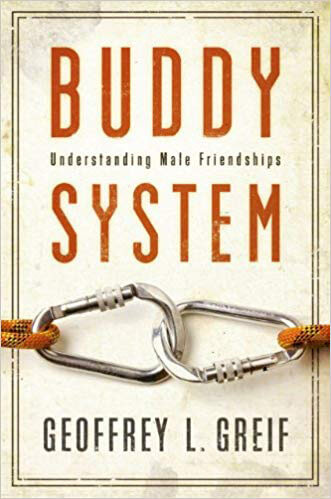The way that men and women go about their friendships differs quite a bit. As our lives change—as we marry, divorce, move, change jobs, fall ill—friendships can become more complicated. And of course, at our age, we’re faced increasingly with the death of friends. That’s why I now focus more than ever on nurturing the friendships I have as well as making new ones. But I worry about my husband, who seems to have no friends right now. Or very few.
He’s suffered similar losses as I have, yet rather than making new friends, his circle continues to shrink. COVID made everything more difficult since everyone seemed to have a fall off in their social lives.
Even before the pandemic, he was isolated. My weeks were filled with “friend dates:” dinner one night, a book signing another, a photography class, and a beach date. The fun I had was tinged with a tad of guilt when I arrived home to my sleeping husband and kissed him softly on the forehead to let him know I’d returned safely.
The thought of him sitting home alone all night while I was out having fun grabbed me in a way that startled me and gnawed at my consciousness. When I spend evenings with friends, I feel bad that I’m leaving him on his own.
Read More: Where Have All My Friends Gone? Dealing With the Losses That Come at Midlife
Shouldn’t He Be More Social?
“Are you ever lonely?” I asked him recently while out walking together.
“Lonely? Um … no,” he answered, matter-of-factly. “I work all week, and I’m so happy to unwind at the end of the day. Then, when the weekends come, I always look forward to being with you.”
Was I projecting? I mean, I know I’d feel lonely if I were him.
Was I projecting? I mean, I know I’d feel lonely if I were him. I need to spend time with friends; it is simply an essential part of my life. Always has been; always will be.
What I meant, and tried to explain to him as we walked, is that I couldn’t remember the last time I saw him hang out with a guy friend. Where were those friendships that thrive on beer, baseball games, and a bar? Do guys gather in Zoom sessions to catch up? Who else, besides me, did he talk to?
While I’m a good and empathic listener, I’m hardly a stand-in for a good guy buddy. We all have those “things” reserved for same-sex chatter; I can’t talk to him about hot flashes, wrinkles, sore knees, or sex the same way I can talk to my women friends.
Friendship Styles
I know my husband misses the friends he’s lost over the years; he’s told me so. And I see him struggling with making new ones, having a tough time understanding and navigating the waters of friendship. Men do bond differently, says Geoffrey Greif, PhD, a sociologist, professor, and author of numerous books, including Buddy System: Understanding Male Friendships. “They don’t have the same skills as women when it comes to friendships,” he explains.
Whereas women have “face-to-face” friendships, men tend to have more “shoulder-to-shoulder” friendships. Rather than sitting and conversing with one another, men participate in activities with one another. (It brings me back to this bit of wisdom from my children’s preschool teachers: “Boys parallel play. Don’t worry, though, eventually they’ll learn how to socialize.”)
But do they, really?
Playing Match-Maker
What often happens is that we try to take care of our husbands by socializing with women whose mates we think our husbands will like, hoping to spark a new friendship. Greif refers to this as a “fix-up.” I’ve done it plenty of times. What usually happens is that the men will have a pleasant enough time, but once we part ways, they never say to one another, “Let’s get together again—next time, just the two of us!”
What often happens is that we try to take care of our husbands by socializing with women whose mates we think our husbands will like.
Apart from their marriages to two friends, the guys may have little in common, explains friendship expert Irene S. Levine, PhD, author of Best Friends Forever: Surviving a Breakup With Your Best Friend. For friendships to stick—whether male or female—the relationship needs to be “convenient” and the two people need to share common interests, she says. That isn’t necessarily the case with these fix-ups.
Read More: Unhappily Ever After? How to Survive A Newly Retired Spouse
Call Off the Robots
There’s another obstacle as well. “Part of being a guy is that you’re socialized to approach a woman in a bar—rather than approach a man as a friend,” says Greif. A-ha. Men are used to romantic rejection from women but fear being rejected by other men, hence their hesitation at reaching out.
Many men fear being viewed as a “stalker” or coming off as being too “needy” around other men.
Greif says that many men fear being viewed as a “stalker” or coming off as being too “needy” around other men; “things that males are not supposed to display.” And approaching other men can be especially challenging for men of the Boomer generation, he says, who were raised differently than men of later generations. “Research supports the fact that society in general has moved to a much more open and communicative style than years ago.”
Wives can help the friend-finding process along, says Greif. Because women are generally such good listeners, “men should share their feelings with their mates, who might be able to commiserate and offer advice,” he notes.
There’s a risk to going overboard, though. Many women who unwittingly take on the role of a “default therapist” for their husbands feel resentful, writes Melanie Hamlett in a recent article titled “Men Have No Friends and Women Bear the Burden.” “Unlike women, who are encouraged to foster deep platonic intimacy from a young age, American men—with their puffed-up chests, fist bumps, and awkward side hugs—grow up believing that they should not only behave like stoic robots in front of other men, but that women are the only people they are allowed to turn to for emotional support—if anyone at all.”
The Fine Art of Finding Friends

Meetup is a great way to find people with similar interests. Image: Meetup/Instagram
Regardless, I still do want to help. Aside from lending an ear, making social plans, and pulling an unsuspecting man off the street because I think he looks like my husband’s type, what’s left to do?
One of the most natural and least intimidating paths to friendship, says Levine, is “to be thrown together with the same people week after week, at a gym or a local continuing education class. Meetup.com is a great way to get together with people who share common interests, such as hiking, photography, wine, or chess. If he is reticent, you can ‘gift’ him an opportunity to take a small group class.”
Try to assess whether your partner really wants to have more friends.
She does say, however, that the need for friendship varies from person to person and changes over time. “Try to assess whether your partner really wants to have more friends and just doesn’t know how to go about it—or whether he’s content as is,” she explains. “It may be that he’s under a great deal of stress at work and the timing is off.”
Another thing I might try is to let my husband in on some research results out of Oxford University that claim that seeing friends twice a week greatly enhances men’s health and well-being. After all, he exercises and tries to eat right, why not add friends to the list of good health behaviors?
But after all that, it’s really up to them. “The saying goes, ‘You can lead a horse to water,’” notes Levine. “But ultimately, in the end, he’s the one who is in control.”
A version of this story was originally published in July 2019.






















0 Comments